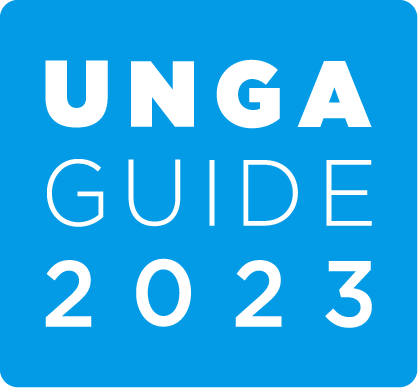
Inclusive Science for Global Sustainable Development in a Climate-changing World
Man has been striving to improve its well-being over centuries. Production of goods and services is needed for the economic growth and well-being of nations. Several inventions over many centuries have resulted in longer life expectancies, wealth creation, industrialization, urbanization, etc. However, these achievements come at invaluable costs to man and the environment. Anthropogenic activities are necessary for human existence, dignity, and quality of life. Unfortunately, this comes with detrimental consequences to man and the environment. Sustainable utilization and management of human and natural resources, therefore, becomes imperative. It implies resource use in justifiable ways without compromising its use in perpetuity. Sustainable utilization and management of resources is, therefore, the responsibility of all.
The 17 sustainable development goals (SDGs) adopted by the United Nations aim to address key socio-economic global challenges as part of the UN’s Agenda 2030 for Sustainable Development. Each of the 17 goals targets a global challenge that member countries are expected to address. Poverty, environmental pollution, and climate crisis exacerbate the impacts of these global challenges across the globe. The global south is particularly at higher risk of these effects. The UN and the developed world, over the past two decades have attempted to mitigate these challenges. Support in different forms is being provided to developing countries across the globe to tackle some of the challenges. The big question though is the local relevance and optimal benefits of those interventions, especially in scientific discourses. For example, the expected norm of the occurrence of legacy and emerging contaminants in environmental compartments after rainfall and/or flooding episodes will be different in developed and developing countries for many reasons.
Five key issues that have been identified recently by the UN include (1) Rescuing the Sustainable Development Goals, (2) Taking stock of an intensifying climate crisis (3) Managing the fallout from COVID-19’s long tail, (4) Delivering record levels of humanitarian need driven by conflicts and disaster and (5) Building more inclusive systems for international cooperation. These five global issues speak mainly to three major themes – socioeconomic equities, inclusivity, and environmental sustainability.
The 17 SDGs may be grouped into three categories that are needed to tackle the triple challenges of socioeconomic, inclusivity and relevant partnerships, Goals 1 (No Poverty), 2 (Zero Hunger) 3 (Good Health and Well-being), 4 (Quality Education), 6 (Clean Water and Sanitation), 7 (Affordable and Clean Energy) 8 (Decent Work and Economic Growth) and 9 (Industry, Innovation, and Infrastructure) seek to address socio-economic issues.
Inclusivity goals include 5 (Gender Equality), 10 (reduced Inequalities), 16 (Peace, Justice, and Strong Institutions) and 17 (Partnerships for the Goals).
The other SDGs – 11 (Sustainable Cities and Communities), 12 (Responsible Consumption and Production), 13 (Climate Action), 14 (Life Below Water), and 15 (Life on Land) speak to environmental sustainability.
The scientific community is key to the successful accomplishment of the set goals. The need to foster strategic partnerships, promote inclusivity (gender, race, geography, knowledge systems, etc.) and ensure sustainability (economic, environmental, and social) in a climate-changing world becomes imperative. This session, therefore, aims to invite experts across the globe to address the challenges associated with inclusive science, environmental pollution issues, and strategic partnerships necessary to deliver on the SDGs in a climate-changing world. Research findings, interventions, and project case studies will be discussed. Additionally, a recommended roadmap for a possible paradigm shift towards optimal resource allocation and use will be presented as an output of the session.
